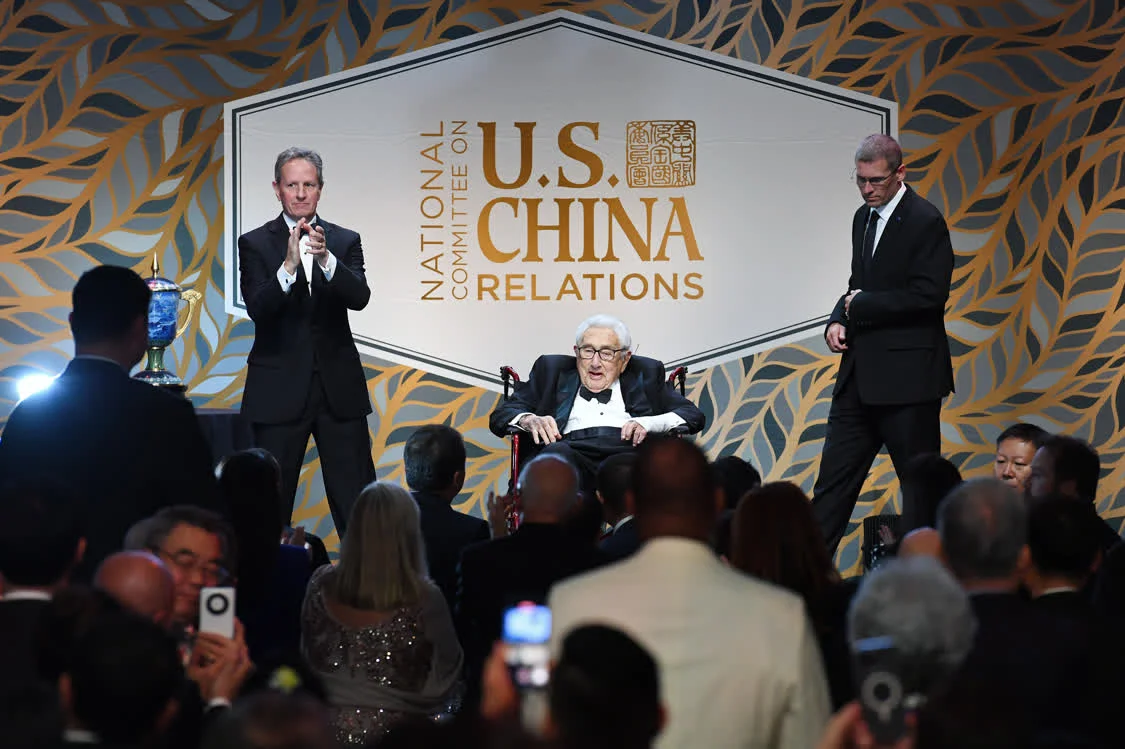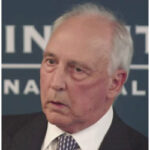澳前总理基廷:基辛格毕生致力于和平与平衡

参考消息网12月2日报道 澳大利亚“珍珠与刺激”网站12月1日发表题为《基辛格与世长辞:保罗·基廷的声明》的文章,作者是澳大利亚前总理保罗·基廷,编译如下:
我第一次见到基辛格是1971年在哈佛大学,当时他就在倡导应在外交政策中保持平衡和克制。
基辛格的伟大之处在于他的思想具有独创性,摒弃了那时占主导地位的思维模式派生出的想法。
上世纪70年代,他与毛泽东和周恩来的开创性会晤改变了世界的战略平衡,使中国远离苏联,与美国达成战略和解。他帮助美国政府制定的一个中国政策,至今仍是支撑美中两国保持关系平衡的核心理念。
这也许是基辛格对世界和平的最大见解和贡献。
多年来,我曾与基辛格多次会面,并有幸让他同意,在我担任中国国家开发银行国际顾问委员会主席的十年间出任副主席。国家开发银行是中国重要的政策性银行。在本世纪头十年,当时基辛格已经80多岁了,他仍然定期出席国家开发银行的会议。
他认为,亚太经合组织领导人非正式会议这个构想,代表着区域合作理念上的巨大飞跃。美国以前只与欧洲进行过这种合作,但从未与亚洲进行过这样的合作。
公众评论会证明,基辛格就世界某些地区做出的决定是有争议的。在他去世后,我们可能会听到更多这样的评论。
但在相对有限的时间内,他能够通过谈判实现停火并结束越南战争,并且在赎罪日战争后参与推动阿以和平进程,然后才有了卡特总统促成的戴维营协议,为中东和平制定了框架。
基辛格活到了100岁。对于一个直到去世前还在积极参与外交政策事务的人来说,这本身就是一项巨大成就。当今世界不太可能再出现像基辛格这样的人物。他在不断变化的世界格局中实时调整行动,但毕生致力于寻找他所追求的和平与平衡。(编译/杨雪蕾)
The death of Henry Kissinger: Statement by Paul Keating
https://johnmenadue.com/the-death-of-henry-kissinger-statement-by-paul-keating/
I first met Henry Kissinger in 1971 at Harvard, where even then, he was extolling the virtues of balance and restraint in foreign policy.
Kissinger’s great strength was that he thought in original terms, eschewing the derivative thinking which so dominates patterns of thought these days.
His pathbreaking meetings with Mao Zedong and Chou En-lai in 1975 altered the strategic balance of the world by pulling China away from the Soviet Union into a strategic accommodation with the United States.
His development of the One China policy remains to this day the pivotal organising idea which underwrites the equilibrium between the world’s two greatest powers, the United States and China.
Perhaps above all else, this remains Henry Kissinger’s greatest insight and contribution to world peace.
I met Henry Kissinger many times over the years and had the honour of Henry agreeing to be deputy chair during my decade as chairman of China Development Bank’s International Advisory Council.
China Development Bank is the principal policy bank of the Chinese state. It underwrote nearly all the new Chinese cities as well as ambitious plans in slum clearance, ports and wharves, highways, telecommunications, fast trains, aged care and health facilities.
Even in the first decade of this century, when Henry was already in his 80s, he attended China Development Bank regularly where he and I were deputised to brief and discuss the outcome of the meetings with the Chinese premier and deputy premier.
The last time I saw him in Beijing, he paid me the compliment of telling me my conceptual approach to strategic policy most closely resembled that of his own and, at the time, that of Zbigniew Brzezinski, the US national security adviser, who actually put the Nixon/Mao accords into place under the presidency of Jimmy Carter, following Henry’s departure from the secretaryship of state.
He thought the idea of the APEC Leaders’ meeting represented a gigantic conceptual leap in regional cooperation of a kind the US had only formerly experienced with Europe – but never before with Asia.
Public commentary will attest to the controversial decisions that Henry Kissinger made in respect of a number of regions in the world, and in his demise, we will probably hear more of that.
But in a relatively limited period of time, he was able to negotiate a ceasefire and terminate the Vietnam War while engaging in Arab/Israeli peacemaking initiatives following the Yom Kippur War ahead of President Jimmy Carter’s Camp David accords with its framework for peace in the Middle East.
Henry Kissinger lived to a hundred. Itself a mighty achievement for someone so actively involved in foreign policy virtually right up until his death.
The international system is unlikely to see again so compelling a person as Henry Kissinger, certainly one constantly calibrating movements in the balance of world affairs and doing it in real time. But all the time searching for the peace and equilibrium to which he was so dedicated。
. Paul Keating was the prime minister of ustralia from 1991 to 1996.
Paul Keating was the prime minister of ustralia from 1991 to 1996.